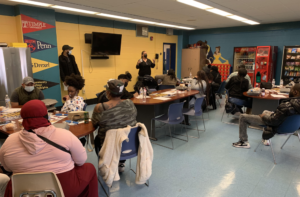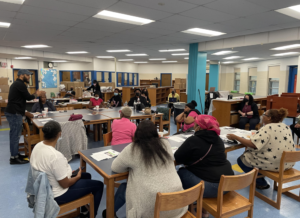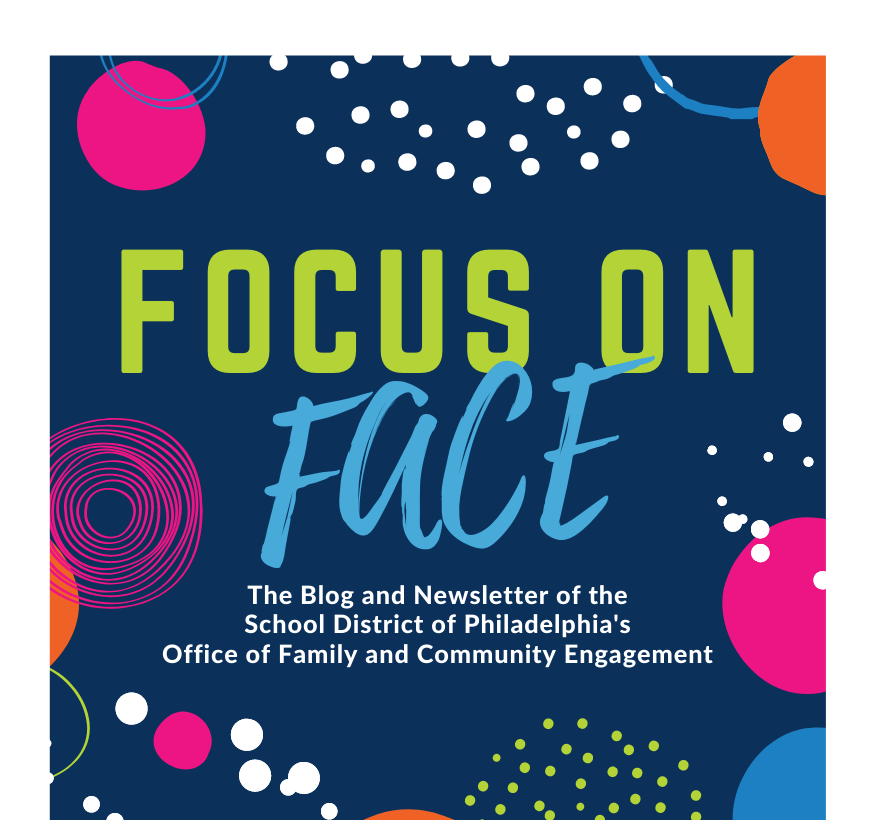With the pandemic still on people’s minds, one thing that schools and families are understandably concerned about is student mental health and wellness. Luckily, families and community members in so many of our schools are pitching in to help– allocating time, money, and effort to using their School Advisory Councils (SACs) and other parent leadership councils (such as Home and School Associations) as a way to bolster student health and provide resources. While the programs and councils at our schools may differ, one thing is abundantly clear– there is a staunch commitment on the part of concerned parents, families, and community members to making sure students and schools are supported in today’s trying times.
 Maritza, a parent and SAC member from Mary McLeod Bethune School, explained that “I promised myself I’d be as involved as possible in my child’s education.” For Maritza, part of that promise involves serving on her school’s SAC and helping to focus on student health and wellness, helping to augment resources, and holding events. Then there’s Maggie; a parent, a SAC member, and a Health and Wellness Committee member at Julia R. Masterman Laboratory and Demonstration School. Maggie and fellow Committee members recognized the challenges presented by the pandemic to students and their health, mentioning that “Mentally and physically if they are not in their best state, they cannot focus– they will get anxious, upset, and they get into a vicious cycle.” For both Maritza and Maggie and so many others, the mental and physical health of students is something well worth supporting.
Maritza, a parent and SAC member from Mary McLeod Bethune School, explained that “I promised myself I’d be as involved as possible in my child’s education.” For Maritza, part of that promise involves serving on her school’s SAC and helping to focus on student health and wellness, helping to augment resources, and holding events. Then there’s Maggie; a parent, a SAC member, and a Health and Wellness Committee member at Julia R. Masterman Laboratory and Demonstration School. Maggie and fellow Committee members recognized the challenges presented by the pandemic to students and their health, mentioning that “Mentally and physically if they are not in their best state, they cannot focus– they will get anxious, upset, and they get into a vicious cycle.” For both Maritza and Maggie and so many others, the mental and physical health of students is something well worth supporting.
And both Maritza and Maggie, along with their fellow SAC and committee members are donating so much time and effort– both to good effect. At Bethune, Maritza explained how a partnership with Temple University “brings resources to the meetings” and “allows participants to navigate those spaces as to why these things are so important– they are able to explain things like how the brain is affected by stress.” Bethune just recently worked to hold an anti-violence awareness event, along with a resource fair. At Masterman, Maggie remarked on how parents and families “so willingly contribute their time, their expertise, their passion.” SAC and Committee members at Masterman were able to present research to school leadership “with regard to how to keep our students safe, and how to prepare the school for students’ safe return”, as well as host a forum for AAPI parents and students to voice their concerns and come together as a community after the Atlanta Spa shooting. For so many school SACs, partnering with organizations and individuals within the community so as to bring resources and knowledge into the school is vital. After all, as Maritza said, “This is what makes a school community, schools should be a community hub for all.”
For parents, families, and community members looking to support student wellness and mental health, but are unsure of how to do so, Maggie has some advice: “Simply put, just [to] ‘show up’” and “…as long as you are willing to make your contribution, you don’t have to do the SAC work every day– that’s the beauty of working as a team.” Maritza advocates for working with the school and FACE liaison as well as having families to “Be available, be open to meeting times” and “Let your school know when you’re able to volunteer” before adding, “Make sure the school has your contact information and let them know the best way to reach you.”
For so many families in the District, student mental health and wellness is a topic that deserves attention and abundant resources. SAC subcommittees devoted to these topics can help to bring in knowledge and best practices that can undergird student health and wellness. By bringing in community partners and having families work as a team, there are so many beneficial things SACs can do to support their school’s students. And when families make a difference, it never fails to brighten everyone’s days– or as Maggie put it, “I’m proud to be a part of this.”

